- Home
- Brian Garfield
Death Sentence
Death Sentence Read online
Death Sentence
Brian Garfield
A MysteriousPress.com
Open Road Integrated Media ebook
FOR
Jay Robert Nash, John McHugh,
Roger Ebert and Bill Granger
CHICAGO FRONT-PAGERS ALL;
WITH THANKS.
Lost is our old simplicity of times;
The world abounds with laws,
and teems with crimes
Pennsylvania Gazette,
Feb. 8, 1775
With ready-made opinions one
cannot judge of crime.
Its philosophy is a little more
complicated than people think.
It is acknowledged that
neither convict prisons
nor any system of hard labor
ever cured a criminal.
FYODOR DOSTOIEVSKY
The House of the Dead
1
THE GUNS pointed in every direction. They were strewn under glass and Paul Benjamin went the length of the counter studying them.
“Interested in handguns?”
The proprietor was hopeful not so much for a sale as for conversation. Paul recognized the inquisitive tone—guns were objects of beauty, artifacts; give the proprietor encouragement and he’d wheel out his display of flintlocks from a back room.
The shop was heavy with oiled rifles and shotguns. Here and there a decorative sword; one corner grudgingly displayed fishing tackle; all the rest was guns.
The proprietor dragged a lame foot when he walked: perhaps his passion for firearms came from their lack of human imperfection. He had grey skin and little moist eyes and an apologetic smile. A recluse. If it weren’t guns it would be a meticulous array of electric trains in his basement. Evidently he was Truett; that was the name painted on the front window.
Under the buzzing fluorescent tubes Paul’s hand looked veined and pale. “Could I see that one?”
“The Webley?” Truett unlocked the back of the case.
“No—next to it. The .38?”
“This one you mean. The automatic.”
“Yes.”
“Smith and Wesson.” Truett put it on top of the case. “You know the weapon?”
“No.…”
Truett slid a blotter cloth along the glass and overturned the pistol on it. “Takes your standard nine-millimeter round.” He popped the magazine out of the handle and proffered the pistol.
Paul looked at it tentatively.
The ball of Truett’s thumb massaged the side of the empty magazine. “A gun ought to be selected for its use. You mind if I ask what purpose you have in mind?”
Paul had the lie ready: it was glib on his tongue. “I’ve just moved out from New Jersey. My brother and I bought a radio and electronics shop down in Chicago. We’re opening next week.”
“You want the gun under the counter against holdups, then.”
“We thought of buying two guns. A very small one that would fit in the back of the cash-register drawer, and a bigger one to keep under the counter.”
“Makes sense. Crime what it is today…” Truett retrieved the pistol and slid the magazine into it. “You don’t want this one.”
“No?”
“Maybe you’ll have kids wandering around the shop. You’d have to leave the chamber empty and the safety engaged. By the time you got it loaded and off safety the holdup men could shoot you fourteen times. Look here.”
Paul watched him grip the slide with his left hand.
“Assume that’s a loaded magazine I just inserted. Here’s what you’ve got to do before you can fire this thing. It takes two hands and it can’t be done silently.”
Truett pulled the slide back. There was a metallic racket when springs shot it home.
“Now you’ve loaded a cartridge into the chamber and you’ve cocked the weapon. But you’ve still got to push the safety off with your thumb, like so.” Truett aimed the pistol at a wall. “Now you’re ready to shoot.”
He put it away under the glass. “Single-action automatic is not a good defense weapon. You want a good revolver, or a double-action automatic.”
“I see.”
“Now here’s a manstopper.” Truett’s voice was different. He lifted something from the case and held it flat on his palms like a reverential offering.
It had the beauty of extraordinary ugliness.
“Too bad it’s got the same disadvantages as that other automatic. But this is a collector’s item—I’ll lay odds you’ve never seen a Luger like this one. They only made a handful of these in forty-five caliber.”
Paul tried to put a polite show of interest on his face to mask his fascination. The .45 Luger had ugly lines: bulging tumors of dark steel. He felt mesmerized.
“A crook finds something like this pointed at his face, he might just faint from fear without you having to shoot at all.” Truett smiled but the smile was awry with unexpected cruelty. Paul stared at the Luger when Truett aimed it carefully past him into neutral shadows. It was like staring into the orifice of a cannon.
“Far as I know this is the only one like it this side of Los Angeles. Forty-five Lugers are like hen’s teeth.” Truett looked as if he wanted to caress it. “But you don’t want a piece like this for shop protection.” He put it away under the glass with great care; then he moved away. “I think I’ve got what you want. Somewhere here.…”
Paul stood above the Luger and talked himself out of it. It was slow and it was too bulky, and above all it was noticeable. He needed something the reverse. Something anonymous, easily concealed, fast to use—a tree in a forest, untraceable because it was identical with ten thousand others. One like the gun he’d left behind in New York. A gun for killing.
He was thinking: I’m an ordinary middle-aged product of a middle-class life. Just like everybody else—born innocent and taught cowardice at an early age. We live our lives in fear. Only this thing has happened in me and I can’t accept that any more. They killed my daughter and my wife. And I’m here buying a gun because I will not be afraid of them any more. I’m a madman, or I’m the only sane man. And who’s to decide that?
Today he would buy the gun and tonight in the city he would hunt. It wasn’t the fever of a holy mission; he didn’t feel obsessed by any sort of fanaticism and it wasn’t pleasure to think about it. But it was something that ought to be done. To rid the streets of them so that perhaps the next man’s daughter might be spared. There was no joy in it: if you were a doctor you didn’t enjoy jabbing needles into people; but Carol and Esther were dead for all time and he had a duty to them.
Truett had found a cardboard box lined with crumpled crepe; fitted into it was a stubby revolver glossy with new blackness.
“Smith & Wesson Centennial. Five shots, hammerless, grip safety, compact, light, takes the thirty-eight special cartridge. Two-inch barrel, tapered sight and shrouded hammer to keep from snagging on your pocket or drawer. This is just about the safest revolver they make, in terms of leaving it loaded around small children. It can’t be fired unless it’s held in a proper grip, you see, you’ve got to squeeze the handle as well as the trigger. It can’t go off if it drops on the floor. I’d recommend this one.”
Paul tried it in his hand. It was as weightless as a child’s toy gun. He dredged a phrase from somewhere in his experience: “What about stopping power?”
“It’s the standard police cartridge. Of course you wouldn’t want to try long-range stunts with it, not with that short barrel, but a good shooter can hit a man thirty feet away with one of these pocket guns and that’s the longest you’d need inside a shop. It kicks like a mule, being so lightweight, but I guess you’d rather have a sore hand than a knife or a bullet in you. Now this is only a five-shot rev
olver, not a six-shooter, but that makes it less bulky and the piece can handle heavy powder loads because the bolt-cuts don’t come over the centers of the chambers. It means you can use high-speed ammunition, next thing to magnum load.”
Truett went down the counter and found a box. There was a small flat pistol inside. Paul had seen something like it on a desk once and it had turned out to be a cigarette lighter.
“I recommend these for cash-register drawers. It’s only a twenty-five caliber auto, but hollow-point loads are your answer and you’ve got to figure you’d only use it at point-blank range anyway. You’d still have to hit a vital spot to kill a man but a hollow-point would chew him up pretty badly wherever it hit him.” Truett talked dispassionately and it was possible his expertise about anatomical damage came from articles in gun periodicals: he didn’t look as if he had ever shot a human being. But then I don’t suppose I do either.
“They say a real hard case would rather get drilled by a three fifty-seven magnum than by one of these with hollow-points. A big gun’s likely to shoot straight through you and leave a clean hole. One of these doesn’t pack enough power to go all the way through cartilage. You get one of these little bullets stuck in the middle of you and you’re liable to die from the sepsis unless you get it removed and cleaned out by a good surgeon. A man who knows his guns will respect one of these when he finds it aimed at him.”
Truett set the .25 toy beside the revolver and found boxes of ammunition. “Soft-nose hollow-points. They used to call them dum-dums—know why? They were originally made in a town in India called Dum-Dum. These bullets literally explode inside the body.”
“I’ll want a few more boxes. For practice. My brother and I ought to go out and get the feel of these guns, I think. If we ever have to use them we’d better be familiar with them.”
“That’s always a good idea. Whereabouts is your shop?”
He had to think quickly. He didn’t know Chicago yet; he’d only just arrived. He remembered the place where he’d bought the secondhand car: the row of car dealers and store-fronts. “Along Western Avenue,” he said. “Just south of the Evanston line.”
“I get a lot of customers like you. Haven’t been in Illinois long enough to qualify for a firearm owner’s identification card, so they come across the line here into Wisconsin. Silly damned law—anybody at all can get the permit but it’s got that idiotic residency requirement. But I can’t complain—it’s been good for my business up here. Anyhow there’s half a million licensed handguns in Chicago. Who do they think they’re kidding?” Truett rummaged in the drawer and lifted out several boxes of cartridges. “If you know anybody in business on the North Side you might inquire about getting a guest membership at the Lincoln Park Gun Club. That’s on Lake Shore Drive not far from your shop.”
“Thanks. I’ll ask around.”
The .38 Centennial was a perfect pocket gun, he thought; it was small and it was clean with no jagged protuberances to catch on cloth. The tiny flat automatic could be hidden nearly anywhere—ideal for emergency reinforcement. It was a refinement that had occured to him recently: what if the gun failed? He had to have a second gun.
“Anything else I can help you with?”
“No thanks. Wrap them up.”
2
HE HAD TO fill out forms: Federal registration of the two guns. He’d anticipated it and the driver’s license he showed Truett wasn’t his own. It was a New Jersey license that had been among his late brother-in-law’s effects and the three-year license still had two months to go before its expiration. Anyone who traced either of the guns to Robert Neuser of Piermont Road in Tenafly would find a dead end.
He carried the parcel out to his three-year-old Pontiac and placed it on the seat beside the gun-cleaning kit he’d brought with him from New York. He turned the key and backed out of the parking space; it was starting to rain.
It was one of the small towns that had been by-passed by the new Interstate expressways, abandoned by travelers and left to wither: the motels needed paint and announced their vacancies hopelessly; a roadside diner had been boarded up.
It was a warm day for winter but the leafless trees were bleak against grey skies. Christmas buntings sagged across the street. He drove through the center of town and followed the patched road east. It two-laned across prairie farms and brought him at four o’clock to a ramp that merged into the southbound Interstate. He was across the line into Illinois in fifteen minutes’ time and the rush-hour headlights swarmed in the opposite lanes by the time he crossed the suburb boundary between Lincolnwood and Chicago, wipers batting away the drizzle. He was trying to forget the things that had made him shriek.
He left the rain behind at the end of the expressway and drove aimlessly, not quite sure where he was until he passed the Water Tower and the John Hancock skyscraper and the Continental Plaza where he’d stayed his first two nights in Chicago; he made a turn and went along some one-way street to Lake Shore Drive and rolled south with the high-rises on his right. But when he reached the turn-off for his apartment building he went on by; he didn’t want to go home yet. He drove past the lights of the Loop. It was time to have his first look at the South Side.
He drove slowly and impatient cars flashed past him in the outside lanes. There were flat patches of darkness between him and the city. Swamps? Railroad yards? Parks? In the night he couldn’t tell. He stopped at a traffic light and when it changed he made a right turn on Balbo and found himself in the Loop: he’d left the Drive too soon. He jigged left and found himself in a tangle of dead ends butting against the railway switching yards.
On impulse he parked in a side street. It was a district of daytime commerce: everything was shut down and there were few lights. No one walked the curbs.
He unwrapped the parcel and loaded the guns. The Centennial went into his topcoat pocket; the flat .25 automatic into his hip pocket, no bigger nor heavier than a wallet. He put the cleaning kit and the boxes of ammunition under the front seat and locked the car when he got out.
The old rage simmered in him. At street corners he stopped and studied the signs, trying to memorize the intersections: he wanted to learn the city. Holden, Plymouth, Federal, LaSalle. Near the intersection of Michigan and Roosevelt he saw a long covered pedestrian bridge across the rail yards, high in the air and walled with glass. Tall covered stairs at either end gave access to it: a good place for a trap, he thought. He watched for ten minutes. If an innocent entered the trap would a predator follow? The interior of the bridge was visible from the street but the lighting was dim and there were deep shadows between overhead lamps where two or three of them had burned out: the dark places where they liked to accost a mark. At the end of the ten minutes a man in working clothes entered the western staircase and Paul watched him appear at the top and make his long pilgrimage across the bridge but nothing interrupted the solitary journey and afterward Paul moved on, the damp wind biting his ears.
Esther.… Carol.…
By eight he was back in the car driving south and the quality of the city changed with each block until he was in the ghetto. Funeral Home. Pool Hall. Social Club. Liquors. Cut-Rate Discount. Jesus Saves. He turned off the boulevard and rolled along a residential street parallel to it: three-story tenements, wooden fire-escape stairs hanging from their walls. Young dark people lounged under the street lamps and stared at his car as he crept past. Come on. Come at me. But they only watched, their insolence muted by motionlessness, and he had to drive on.
He made a right turn into a wide boulevard. A bus swished past; there wasn’t much other traffic. He cruised west and the ghetto changed. Soul Food gave way to Tacos and Bodegas. He stopped at a red light and rolled the window down. An El train clattered faintly in the distance; from a bar came the juke-box thumpings of Spanish music. A souped-up car with enormous rear tires growled past him like a mutant insect. In the next block he parked, hungry, and went into a café and ate at the counter: he had discovered Mexican food in Arizona, where he’
d got his first gun.
The Centennial was a familiar weight in his coat pocket; he’d felt vulnerable the past few days, empty-pocketed in the city.
The chili relleno was good; he washed it down with beer. He paid the fat woman and went back to the street. It was coming up on nine o’clock and getting colder. A Christmas banner across a drugstore said “Feliz Navidad” and three laughing men came out of a bar, one of them carrying a six-pack.
He got back in the car frustrated: he didn’t know the city well enough. He drove in any direction, prowling.
He had no idea where he was but there was a map in the glove compartment and eventually he’d consult it and find his way home; in the meantime he had to explore.
It was a bar on a dark street somewhere a bit north and west of the center of things: through the window it looked like a boisterous drunk crowd and not far down the street two men in shabby coats sat on porch steps watching the bar. Paul had only a glimpse of them when he drove past but it was as if he read their thoughts and when he reached the corner he turned out of their sight and searched for a place to park the car. He found a spot a block away and locked the doors and circled the block on foot; he stopped at the corner and waited while several cars drove by. When he looked past the corner he saw the front of the bar and if he stepped out a pace he could see the two young men on the stoop; he did it once and then faded back because he didn’t want to alert them. They were still sitting there, passing a bottle back and forth between them—probably wine. But they were young and wiry under the tattered coats and the immobility of their features had given them away to him instantly: he knew them, he’d made a study of their kind and Chicago was no different from New York when it came to that subspecies.
He fixed the plan in his head and then stepped out into plain sight on the curb. He walked as if he were a little drunk; he didn’t exaggerate it but he moved with slow deliberate care, a bit owlish, not staggering. He looked both ways and crossed the street briskly and tripped over the curb mounting the sidewalk; he made a show of gathering his dignity and went into the bar. He hadn’t had to look at the two men on the stoop to know they’d been watching him.

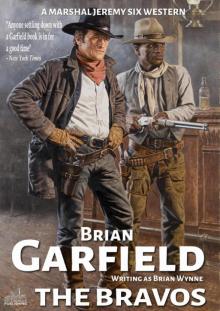 Marshal Jeremy Six #3
Marshal Jeremy Six #3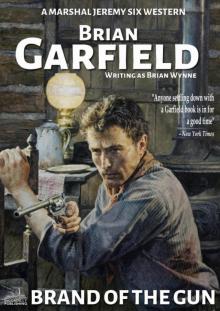 Marshal Jeremy Six #6
Marshal Jeremy Six #6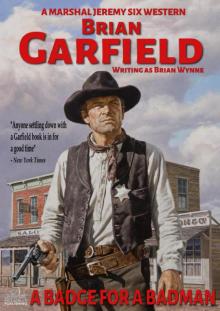 Marshal Jeremy Six #5
Marshal Jeremy Six #5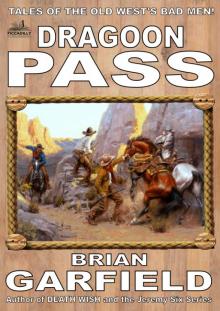 The Outlaws 2
The Outlaws 2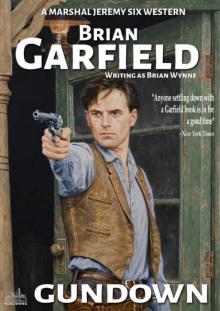 Marshal Jeremy Six #7
Marshal Jeremy Six #7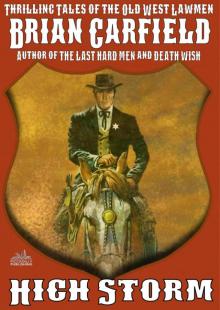 The Lawbringers 4
The Lawbringers 4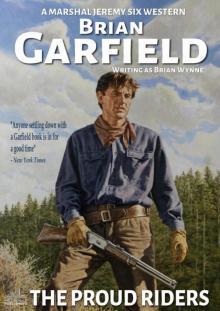 Marshal Jeremy Six #4 the Proud Riders
Marshal Jeremy Six #4 the Proud Riders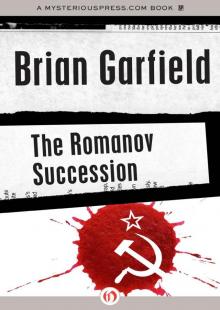 The Romanov succession
The Romanov succession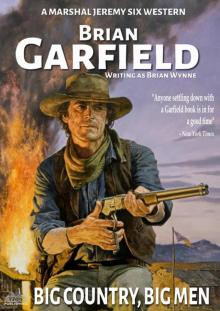 Marshal Jeremy Six #8
Marshal Jeremy Six #8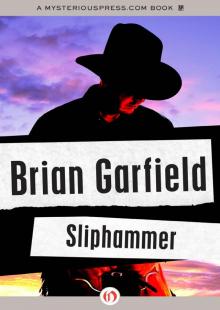 Sliphammer
Sliphammer Line of Succession
Line of Succession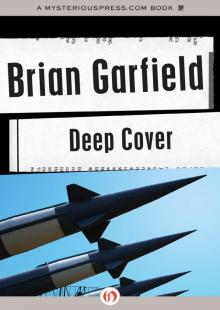 Deep Cover
Deep Cover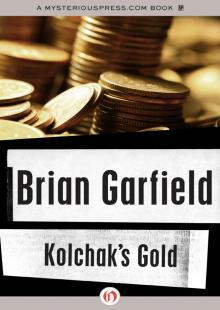 Kolchak's Gold
Kolchak's Gold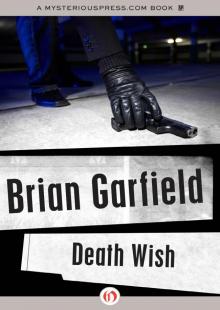 Death Wish
Death Wish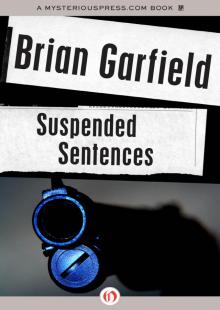 Suspended Sentences
Suspended Sentences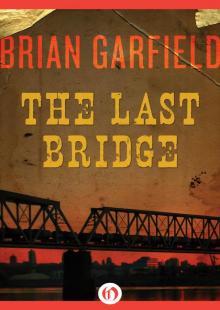 The Last Bridge
The Last Bridge Relentless
Relentless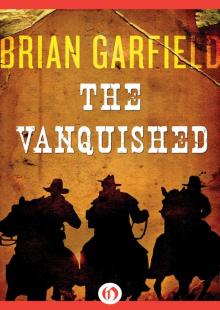 The Vanquished
The Vanquished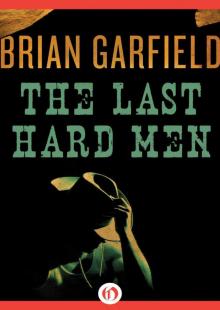 The Last Hard Men
The Last Hard Men Hit and The Marksman
Hit and The Marksman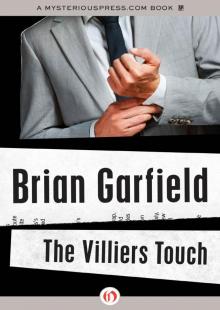 Villiers Touch
Villiers Touch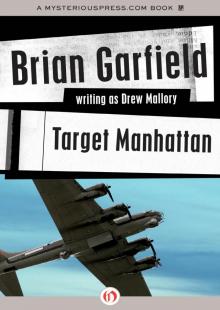 Target Manhattan
Target Manhattan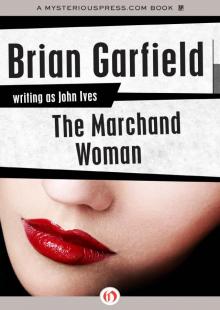 Marchand Woman
Marchand Woman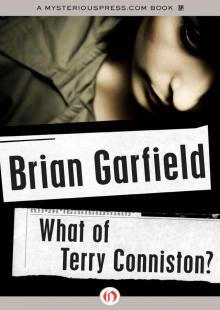 What of Terry Conniston?
What of Terry Conniston?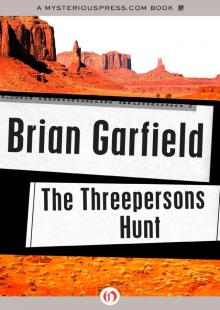 Threepersons Hunt
Threepersons Hunt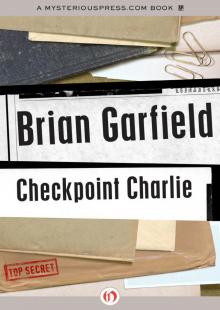 Checkpoint Charlie
Checkpoint Charlie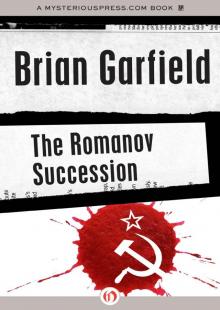 Romanov Succession
Romanov Succession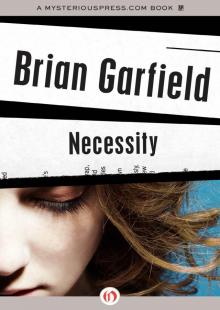 Necessity
Necessity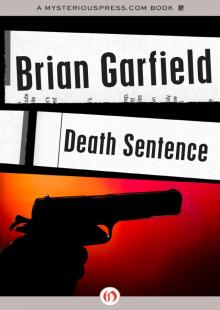 Death Sentence
Death Sentence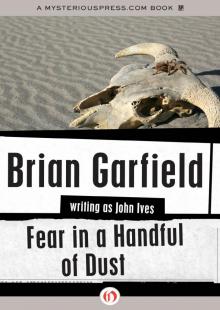 Fear in a Handful of Dust
Fear in a Handful of Dust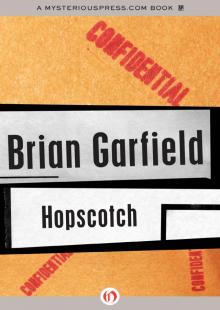 Hopscotch
Hopscotch